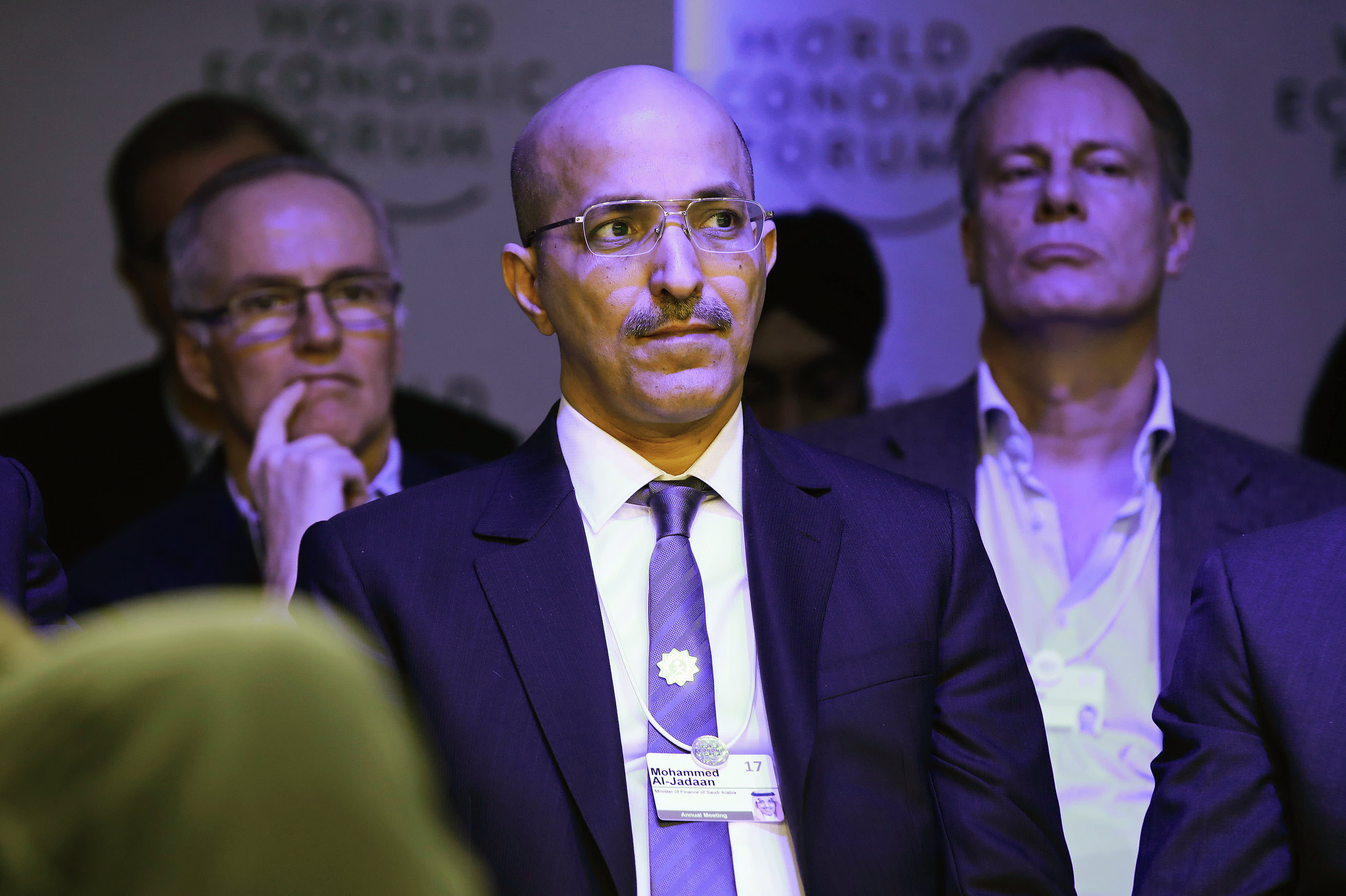Mohammed Al-Jadaan, Saudi Arabia’s finance minister, at the World Economic Forum in Davos, Switzerland
Jason Alden | Bloomberg | Getty Images
Saudi Arabia is willing to support crisis-stricken Lebanon, but wants to see a realistic reform plan first, its finance minister said during the G-20 Summit in Riyadh on Sunday.
Asked if the kingdom would offer financial assistance to Lebanon, which is in the clutches of a debt, banking and currency crisis brought on by decades of financial mismanagement and corruption, Saudi Finance Minister Mohammed al Jadaan said he’s monitoring the situation as it unfolds.
“Saudi Arabia has been a strong supporter of Lebanon for decades, it’s not new, but we are watching what is happening at the moment,” he told CNBC’s Hadley Gamble. “We are talking to the IMF and others — we want to see a reform plan that is viable and doable and then we will take action.”
“I would like to see a very clear reform plan that is doable, viable, accepted by the IMF and the supporting countries, and we will obviously assess it and stand ready.”
The comments come amid Lebanon’s worst financial crisis in 30 years, with its banking system under worse strain than during the country’s 1975-1990 civil war.
Lebanon was hit with a double downgrade over the weekend by two of the world’s largest ratings agencies, bringing the country of six million further into junk territory. Moody’s and S&P Global Ratings downgraded Lebanon’s long-term foreign currency rating to Ca and CC, respectively — both of which are ten steps below investment grade — foreshadowing what investors now expect to be the country’s first-ever bond default.
In the last week alone, the World Bank has warned of an “implosion” and the yield on Lebanon’s eurobonds maturing in March surpassed an eye-popping 1,000%. Government officials are now in talks with International Monetary Fund advisers on how to proceed, including how to manage its $30 billion in international bonds, one-third of which are held by foreign investors. The rest are held by local bondholders.
A default is likely to wipe out the capital of most local banks, analysts say, as roughly 70% of Lebanese banks’ assets are sovereign and central bank debt instruments. In a report last week, Moody’s predicted that a debt restructuring plan for Lebanon would likely include bond writedowns to the tune of 35% to 65% of face value.
The country has the world’s highest debt-to-GDP ratio at around 160%, and has suffered for years from low growth, high unemployment and rampant corruption. “Financial engineering” by the central bank is also to blame, many economists say, which involved luring dollar deposits from local banks at high interest rates to finance the government’s spending. The lira, officially pegged to the dollar, has plummeted 40% on the black market as local banks ration dollars necessary for imports of food, medicine and other essential goods.
Investors increasingly expect a default on the eurobond payment of $1.2 billion due on March 9. That is among the many pressing decisions for Prime Minister Hassan Diab, who was appointed in late January after months of popular protests across the nation forced former Prime Minister Saad Hariri to step down in October.
Lebanon’s decision-making process is beholden to its system of consensus government, which divides leadership among the country’s many religious sects, and is often blamed for political gridlock and patronage. The country’s most powerful party is Hezbollah, the Shiite political and militant group backed by Iran, Saudi Arabia’s regional arch-rival.
Asked whether the region could afford Lebanon as a failed state, al Jadaan replied, “It is in our interest to ensure we don’t have failed states in this region, unfortunately we have some, and we are working with them to ensure that that number does not increase but that those who are in trouble are actually helped and their people are helped to reach their potential.”
Al Jadaan told CNBC during an interview in early 2019 that the kingdom was behind Lebanon “all the way” in terms of supporting it in times of financial need. The finance minister on Sunday reiterated that support albeit with a more reserved tone, emphasizing the need for a clear and feasible plan by the Lebanese government to clean up the financial practices that brought it to this point.
“We are behind the Lebanese people all the way and will continue — I mean we host tens of thousands of Lebanese in Saudi Arabia and will continue,” al Jadaan said. “We want to see what is the reform agenda that the government is putting forward, is it viable, and then we work with our partners to assess it.”
